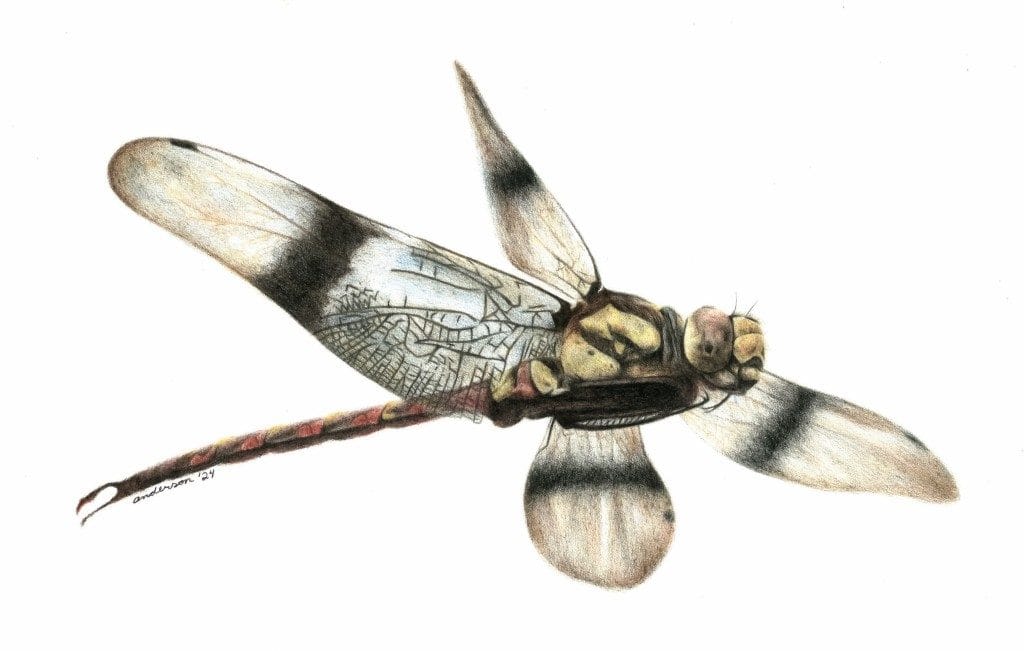A McGill University undergraduate student’s discovery of a dragonfly wing has led to a 30-million-year gap in the evolutionary history of dragonflies.
The fossil was discovered in 2023, in Alberta’s Dinosaur Provincial Park. Researchers have since been able to confirm it as a new species, and it is the first known dragonfly fossil from Canada’s dinosaur-aged rocks.
“We were excavating an area where many leaf fossils had been found by cracking rocks,” said André Mueller, lead author of the study and a Master’s student in Larsson’s Lab in McGill’s Department of Biology. “When the partial wing was uncovered, we were taken by surprise as we were not expecting to find any insects there.”
“This is the first ever dinosaur-aged dragonfly found in Canada. Its wingspan was about the width of a human hand, and while small, it would have been an important part of the Cretaceous ecosystem—a tasty raptor snack, no doubt.”
Researchers also note that where the fossil was found is rich in dinosaur bones; however, insect fossils are extremely rare, as only one insect has been found in the Dinosaur Park Formation. That insect was a microscopic aphid trapped in amber.
“This discovery not only doubles our knowledge of insects from the park, but also represents a completely unknown preservation method, impression fossils, for insects fossils in the area,” said Alexandre Demers-Potvin, a former Larsson PhD student and now a postdoctoral fellow in McGill’s Department of Biomedical Engineering.
“We’ve now started finding more insect fossils by expanding where and how we search. The diversity of insect life during this time was likely much greater than we thought,” he added.
As for the evolutionary gap, researchers say it’s the first known North American member of a large group of dragonflies called Cavilabiata.
“The wing anatomy tells us this species was adapted for gliding; a trait associated with migratory dragonflies today and possibly a key to their success,” said Professor Hans Larsson.
“This specimen also provides insight into what life was like in Canada 75 million years ago, adding an important new missing piece of the ecological puzzle of one of the most diverse dinosaur-bearing sites in the world”.
The research team has named the dragonfly Cordualadensa acorni. Cordualadensa is the new family for the species, and acorni is in honour of University of Alberta lecturer John Acorn.
For more on the study, click here.



